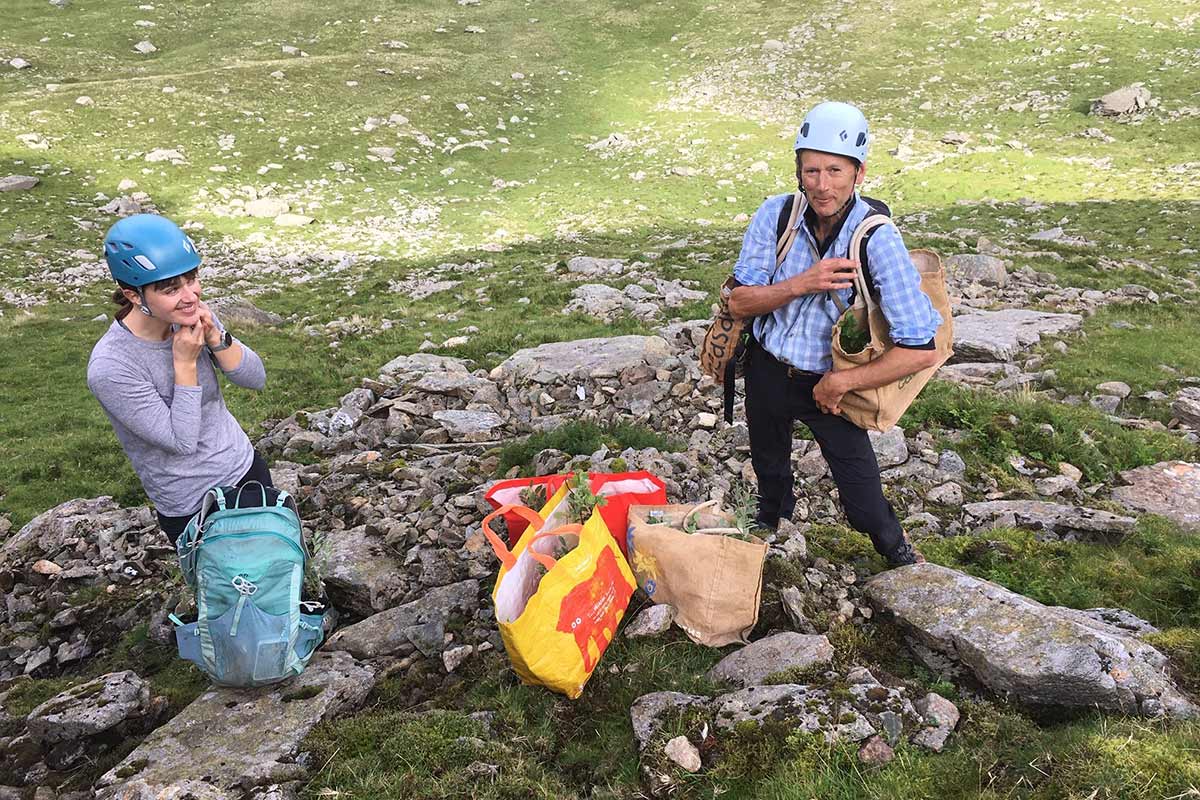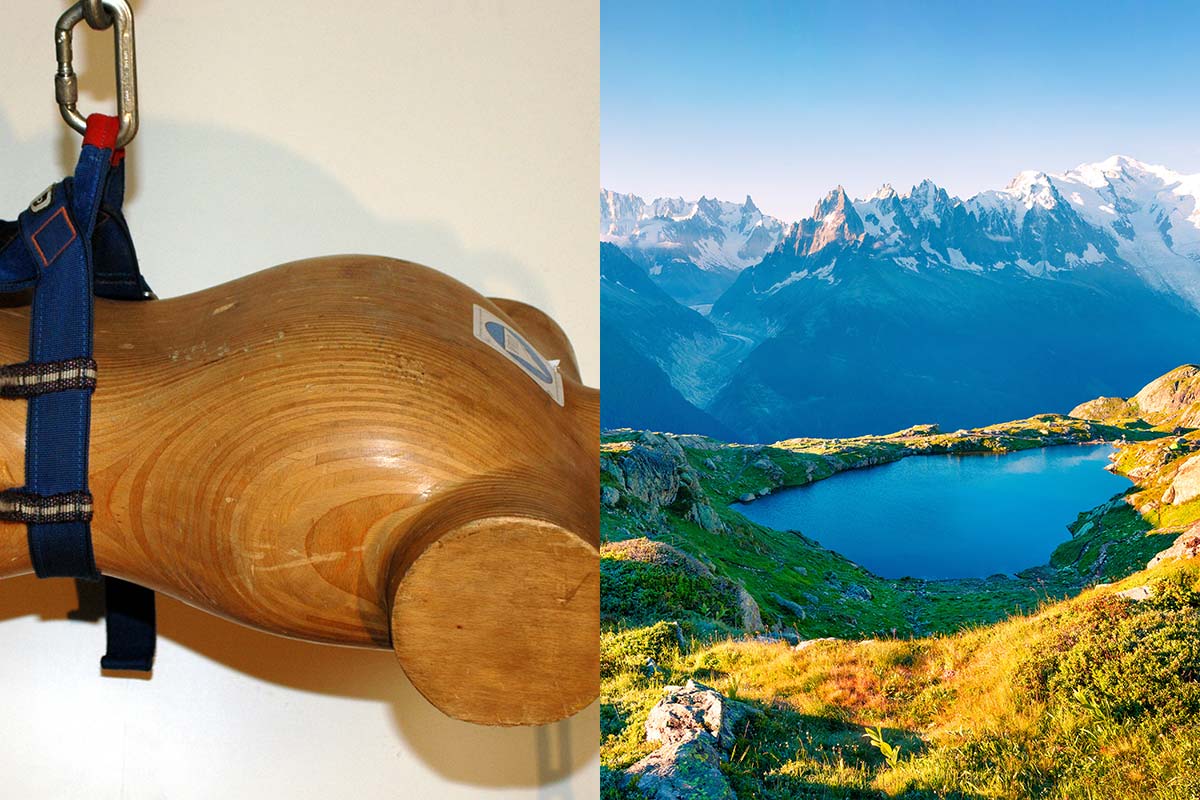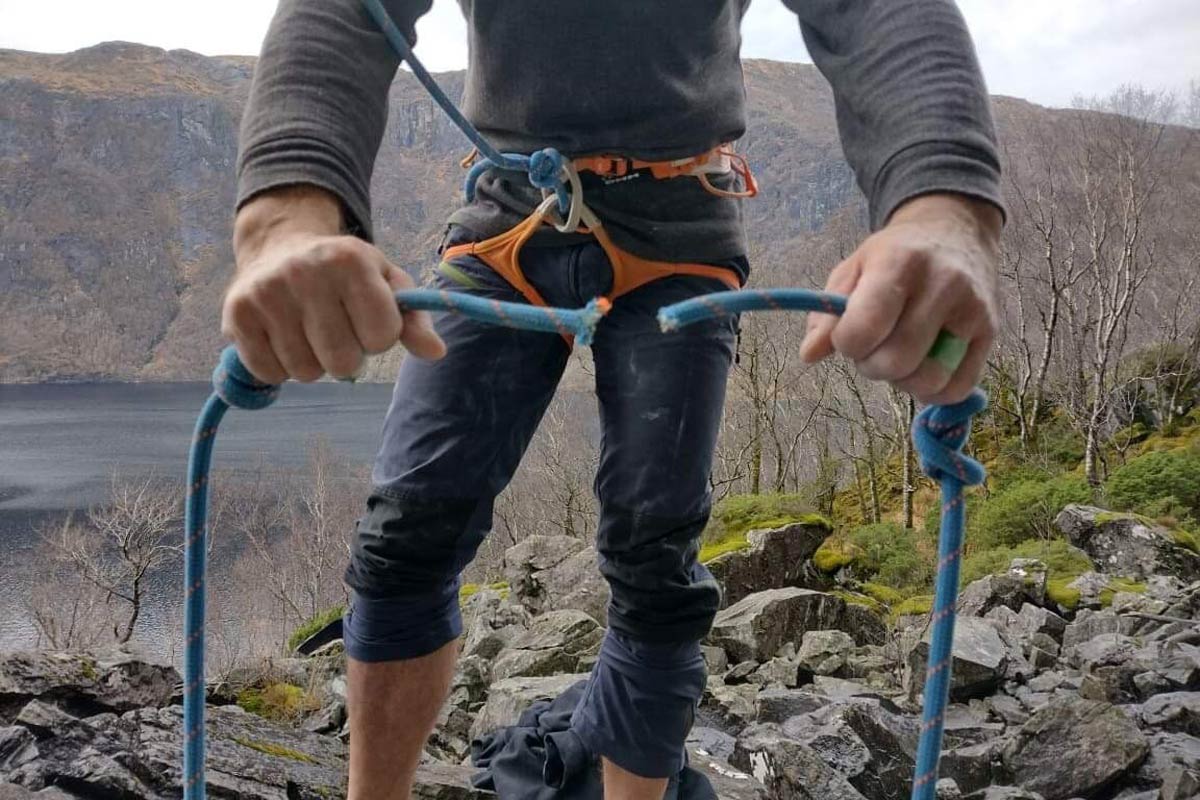This article forms part of a series created by the UIAA – International Mountaineering & Climbing Federation – for International Mountain Day, 11 December. An overview article about the UIAA & IMD can be found here.
For IMD, project leaders from UIAA Mountain Protection Award showcased projects have provided information on the progress of their projects, the importance of biodiversity – the theme of this year’s IMD – and the impact of Covid-19.
Protecting Arctic Flora and Upland Raptors
Organisation: John Muir Trust
Location: England
MPA edition(s): 2018
The project’s aim is to work with climbers in the winter to provide as much information as possible for a judgement to be made on the suitability of climbing conditions to avoid damage to rare upland flora some of which is unique in England.
This included the installation of air and ground temperature sensors at two locations on key winter climbing areas to give real time, web based information on air and ground conditions at 5, 10 and 15cm turf depth. This was updated every five minutes. This keyed in with the daily report from the National Park of the winter conditions from the summit of Helvellyn. JMT is currently working on a replacement for the system as the extreme conditions have made the system difficult to maintain.
In summer to work with climbers to highlight, and where agreed, restrict climbing during the breeding season to protect declining species on the high crags such as peregrine falcon and raven.

Progress Report since 2018
Crag Restrictions
From the Lake District to the far north of Scotland, John Muir Trust (JMT) staff monitor the popular climbing crags for rare breeding birds like Peregrine and Raven. In 2019 and 2020 staff monitored six sites in the Lake District alone. Thanks to the climbers that give these amazing birds chance to breed in peace almost all the nests produced and fledged young. There are more passionate people from Natural England, National Trust, British Mountaineering Council, Lake District National Park Authority and more who make it possible to monitor many more nest site across the Lake District.
The Arctic Alpine Restoration Project has made huge progress over the last two years. This constantly evolving project has seen the propagation of 1500 of the montane Downy willow (Salix lapponum) from a low of 23 remnant shrubs.
2019
Local growers managed to propagate 200 Montane Willows of four different species. Alongside Trust staff and Natural England it was a hugely successful year and these plants have been carefully planted out into some of the most inaccessible places on the SSSI. Planting in the high crags starts in September and ends in late October. This gives the willows a small window to set some roots before the harsh winter conditions. By the time spring comes around these plants are in good shape to start growing again. As well as montane willows, 2019 was an excellent year for specialist mountain flowers. Alpine Cinquefoil was grown from a local seed source and planted out for the first time and has established well. Purple Saxifrage (another mountain specialist) has also been grown from seed collected from the common. The hope is to take cuttings from this individual and start new populations on areas where its been lost.
2020
Despite the circumstances, JMT has had another exceptional year in 2020. A further 250 montane willows and 101 mountain flowers have been planted on the high crags as well as in a 21ha fenced exclosure. Several new species have also been returned to the site such as Shrubby Cinquefoil. Natural England staff managed to crack the code of propagation and six individuals have been returned to the sites of their old botanical records. Volunteers and the John Muir Trust have had huge success with Alpine Cinquefoil this year. Seven specimens plus material grown by trust staff have been planted out to bolster the plants put out in 2019. Another community of Alpine Cinquefoil has been planted in the next cove over. An exciting development this year has been the collection of Mountain Avens seed from Jahama Estates which borders our Ben Nevis property. The population on Glenridding Common is sadly functionally extinct but with permission from Nature Scot and Natural England we have some material to grow on. This seed has been distributed amongst volunteers, Kew Gardens, Natural England and John Muir Trust staff to ensure the best chance of success. The hope is to supplement the population on Glenridding Common and once again have a viable population of this wonderful flower.
This project wouldn’t be possible without some key groups that have supported this work over the past two years. The Lake District Foundation has generously donated to this project which has enabled us to purchase all the vital equipment needed for propagation, Natural England and Nature Scot for help and permissions regarding planting, seed collection and propagation, Our amazing local volunteers for their continued hard work and more. The Trust thanks the UIAA member association, the British Mountaineering Council (BMC), and ice climbers for their continued support and understanding when it comes to these extremely rare plant communities.
Information courtesy of Pete Barron, Property Manager, and Isaac Johnston, Glenridding Common (Helvellyn) Ranger
Other profiled projects include:
Patagonia Waste Management, Argentina
Study and Monitoring of Chachacomani Glacier, Bolivia
Save the Barun, Nepal
SWAT Project, Pakistan
FURTHER READING
The UIAA has also recently commenced a series profiling past Mountain Protection Award winners. Following recent profiles on the progress made by Mountain Wilderness France (2016) and AlpineLearning Project Weeks (2019) – the recent focus turned to 2017 winner Mount Everest Biogas Project (MEBP).
PROJECT PARTNER
Bally is a Swiss luxury brand established in 1851, with a rich heritage in shoemaking, and a longstanding relationship to architecture, arts and the environment. Today, the brand offers unique designs across shoes, accessories and ready-to-wear, driven by a dedication to craftsmanship and a contemporary aesthetic. Bally has over 300 retail stores and 500 multi-brand points of sale that span across 66 countries worldwide, including a global e-commerce platform serving 34 countries. For more information, please visit Bally.com




